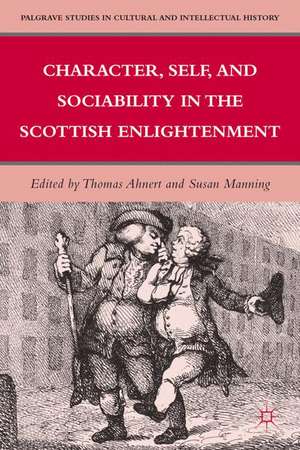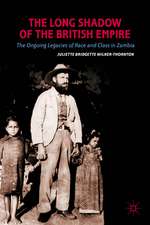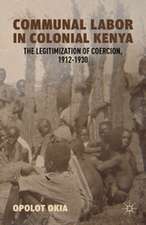Character, Self, and Sociability in the Scottish Enlightenment: Palgrave Studies in Cultural and Intellectual History
Editat de T. Ahnerten Limba Engleză Hardback – 22 noi 2011
Din seria Palgrave Studies in Cultural and Intellectual History
-
 Preț: 383.12 lei
Preț: 383.12 lei -
 Preț: 387.38 lei
Preț: 387.38 lei - 15%
 Preț: 584.76 lei
Preț: 584.76 lei -
 Preț: 387.75 lei
Preț: 387.75 lei - 15%
 Preț: 642.51 lei
Preț: 642.51 lei - 15%
 Preț: 691.73 lei
Preț: 691.73 lei - 15%
 Preț: 643.00 lei
Preț: 643.00 lei -
 Preț: 387.75 lei
Preț: 387.75 lei -
 Preț: 389.70 lei
Preț: 389.70 lei -
 Preț: 390.63 lei
Preț: 390.63 lei - 15%
 Preț: 646.62 lei
Preț: 646.62 lei -
 Preț: 389.70 lei
Preț: 389.70 lei -
 Preț: 390.63 lei
Preț: 390.63 lei -
 Preț: 392.37 lei
Preț: 392.37 lei -
 Preț: 417.14 lei
Preț: 417.14 lei -
 Preț: 211.16 lei
Preț: 211.16 lei -
 Preț: 388.72 lei
Preț: 388.72 lei -
 Preț: 386.00 lei
Preț: 386.00 lei - 15%
 Preț: 643.34 lei
Preț: 643.34 lei -
 Preț: 386.81 lei
Preț: 386.81 lei -
 Preț: 387.75 lei
Preț: 387.75 lei -
 Preț: 389.70 lei
Preț: 389.70 lei -
 Preț: 388.72 lei
Preț: 388.72 lei -
 Preț: 390.63 lei
Preț: 390.63 lei - 15%
 Preț: 649.06 lei
Preț: 649.06 lei - 15%
 Preț: 641.71 lei
Preț: 641.71 lei - 15%
 Preț: 643.34 lei
Preț: 643.34 lei -
 Preț: 395.47 lei
Preț: 395.47 lei - 15%
 Preț: 644.82 lei
Preț: 644.82 lei -
 Preț: 389.70 lei
Preț: 389.70 lei -
 Preț: 384.86 lei
Preț: 384.86 lei - 18%
 Preț: 778.90 lei
Preț: 778.90 lei -
 Preț: 389.70 lei
Preț: 389.70 lei -
 Preț: 385.84 lei
Preț: 385.84 lei -
 Preț: 390.63 lei
Preț: 390.63 lei -
 Preț: 388.72 lei
Preț: 388.72 lei
Preț: 642.51 lei
Preț vechi: 755.88 lei
-15% Nou
Puncte Express: 964
Preț estimativ în valută:
122.96€ • 127.90$ • 101.51£
122.96€ • 127.90$ • 101.51£
Carte tipărită la comandă
Livrare economică 12-26 aprilie
Preluare comenzi: 021 569.72.76
Specificații
ISBN-13: 9780230104143
ISBN-10: 0230104142
Pagini: 298
Ilustrații: XV, 298 p.
Dimensiuni: 140 x 216 x 23 mm
Greutate: 0.48 kg
Ediția:2011
Editura: Palgrave Macmillan US
Colecția Palgrave Macmillan
Seria Palgrave Studies in Cultural and Intellectual History
Locul publicării:New York, United States
ISBN-10: 0230104142
Pagini: 298
Ilustrații: XV, 298 p.
Dimensiuni: 140 x 216 x 23 mm
Greutate: 0.48 kg
Ediția:2011
Editura: Palgrave Macmillan US
Colecția Palgrave Macmillan
Seria Palgrave Studies in Cultural and Intellectual History
Locul publicării:New York, United States
Cuprins
Reid and Hume on the Possibility of Character; J.A.Harris Adam Smith's Rhetorical Art of Character; S.McKenna The Moral Education of Mankind: Character and Religious Moderatism in the Sermons of Hugh Blair; T.Ahnert The Not-So-Prodigal Son: James Boswell and the Scottish Enlightenment; A.La-Vopa Character, Sociability and Correspondence: Elizabeth Griffith and The Letters between Henry and Frances; E.T.Bannet Smellie's Dreams: Character and Consciousness in the Scottish Enlightenment; P.M.William Aspects of Character and Sociability in Scottish Enlightenment Medicine; N.Vickers The 'Peculiar Colouring of the Mind': Character and Painted Portraiture in the Scottish Enlightenment; V.Coltman National Characters and Race: A Scottish Enlightenment Debate; S.Sebastiani Character and Cosmopolitanism in the Scottish-American Enlightenment; H.Spahn Historical Characters: Biography, the Science of Man, and Romantic Fiction; S.Manning Necessity, Freedom, and Character Formation from the Eighteenth Century to the Nineteenth; J.Seigel
Recenzii
'Although David Hume, Adam Smith, and James Boswell rightfully emerge as the stars of this volume on eighteenth- and early nineteenth-century Scottish notions of character and self, one also encounters painters and preachers, physicians of the nervous system and philosophers of common sense, a learned printer, and other varieties of Enlightenment figures. It adds up to a stimulating read on a fascinating and previously neglected topic.' Richard B. Sher, author of The Enlightenment and the Book
''Character' was a key term in the eighteenth century, operative and meaningful across many forms of writing from the literary to the philosophical, medical, scientific, anthropological, and historical. This collection is the first to approach this distinctively Enlightenment way of understanding of the contextual self in an interdisciplinary manner. Taken together, these essays shed new light on the conceptual field of character, and offer rich and important new insight into its Scottish, European, and American implications.' Karen O'Brien, professor of English Literature, University of Birmingham, UK
'The concept of character is as central in eighteenth-century culture as it is protean in its guises. It is associated with virtue, or with what we might now call integrity. It is associated with reputation, and with the ways in which a person is captured in description or depiction. It is associated with the notion of specific traits, what Shaftesbury calls 'characteristicks.' And it is associated with mask or persona i.e., with guise itself. Ahnert and Manning have assembled essays that bring to bear the necessary multiplicity of perspectives to survey this wide range of meanings. By anchoring the project in Scottish Enlightenment moral theory, they have also provided a sense of coherence to the collection as a whole, nicely explicated in their lucid introduction. All in all, the volume is a valuable resource for students of eighteenth-century culture and historians of ethical discourse.' James Chandler, Barbara E. & Richard J. Franke Professor in the department of English Language & Literature, The University of Chicago
''Character' was a key term in the eighteenth century, operative and meaningful across many forms of writing from the literary to the philosophical, medical, scientific, anthropological, and historical. This collection is the first to approach this distinctively Enlightenment way of understanding of the contextual self in an interdisciplinary manner. Taken together, these essays shed new light on the conceptual field of character, and offer rich and important new insight into its Scottish, European, and American implications.' Karen O'Brien, professor of English Literature, University of Birmingham, UK
'The concept of character is as central in eighteenth-century culture as it is protean in its guises. It is associated with virtue, or with what we might now call integrity. It is associated with reputation, and with the ways in which a person is captured in description or depiction. It is associated with the notion of specific traits, what Shaftesbury calls 'characteristicks.' And it is associated with mask or persona i.e., with guise itself. Ahnert and Manning have assembled essays that bring to bear the necessary multiplicity of perspectives to survey this wide range of meanings. By anchoring the project in Scottish Enlightenment moral theory, they have also provided a sense of coherence to the collection as a whole, nicely explicated in their lucid introduction. All in all, the volume is a valuable resource for students of eighteenth-century culture and historians of ethical discourse.' James Chandler, Barbara E. & Richard J. Franke Professor in the department of English Language & Literature, The University of Chicago
Notă biografică
THOMAS AHNERT Senior Lecturer in Early Modern Intellectual History at the University of Edinburgh, UK.
SUSAN MANNING Grierson Professor at the University of Edinburgh, UK, and Director of the Institute for Advanced Studies in the Humanities.
SUSAN MANNING Grierson Professor at the University of Edinburgh, UK, and Director of the Institute for Advanced Studies in the Humanities.












